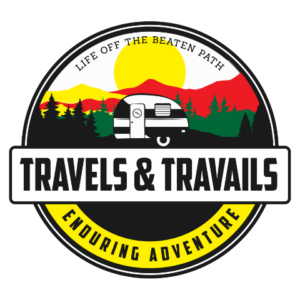Pop-up tent trailers, also known as pop-up campers, have become increasingly popular among camping enthusiasts for their convenience and affordability. These trailers feature collapsible walls and roofs that allow them to be easily transported and set up at a campsite, providing a comfortable and relatively inexpensive camping experience. However, some people may wonder if these trailers are safe to use, given their lightweight and flexible construction.
Pop-up tent trailers can be safe to use if proper safety precautions are taken, such as using stabilizing equipment, inspecting the trailer regularly, and following manufacturer instructions.
In this article, we will explore the safety features of pop-up tent trailers and examine some of the potential safety issues that campers should be aware of when using these trailers.
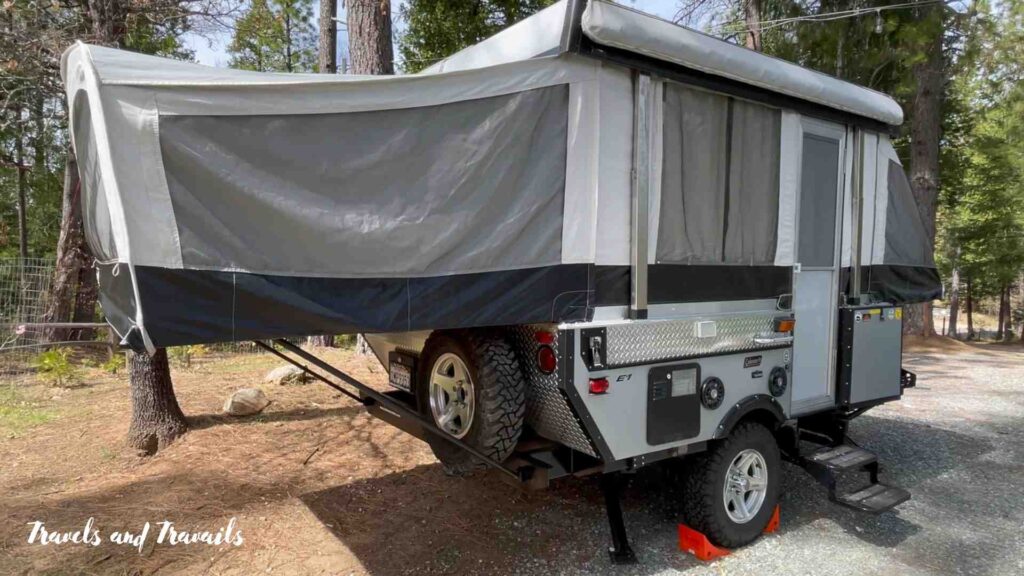
First, we’ll discuss the reasons pop-up tent trailers are safe. After that, we’ll discuss the common safety issues with pop-up tent trailers.
Pop-up Tent Trailer Safety Advantages
Here are the safety advantages of pop-up tent trailers.
Pop-up Tent Trailers Have a Low Center of Gravity
Pop-up campers are designed with a low center of gravity, making them less likely to tip over during transportation or while parked. This feature provides more stability during high winds or uneven terrain.
Pop-up Tent Trailers Have a Lightweight Construction
Pop-up campers are lightweight and designed to be towed by a variety of vehicles. This reduces the risk of accidents caused by overweight or overloaded vehicles.
Pop-up Tent Trailers Have Enhanced visibility
Pop-up campers have large windows and screened doors that provide enhanced visibility, which can prevent accidents caused by low visibility.
Pop-up Tent Trailers Have Comfort and Convenience
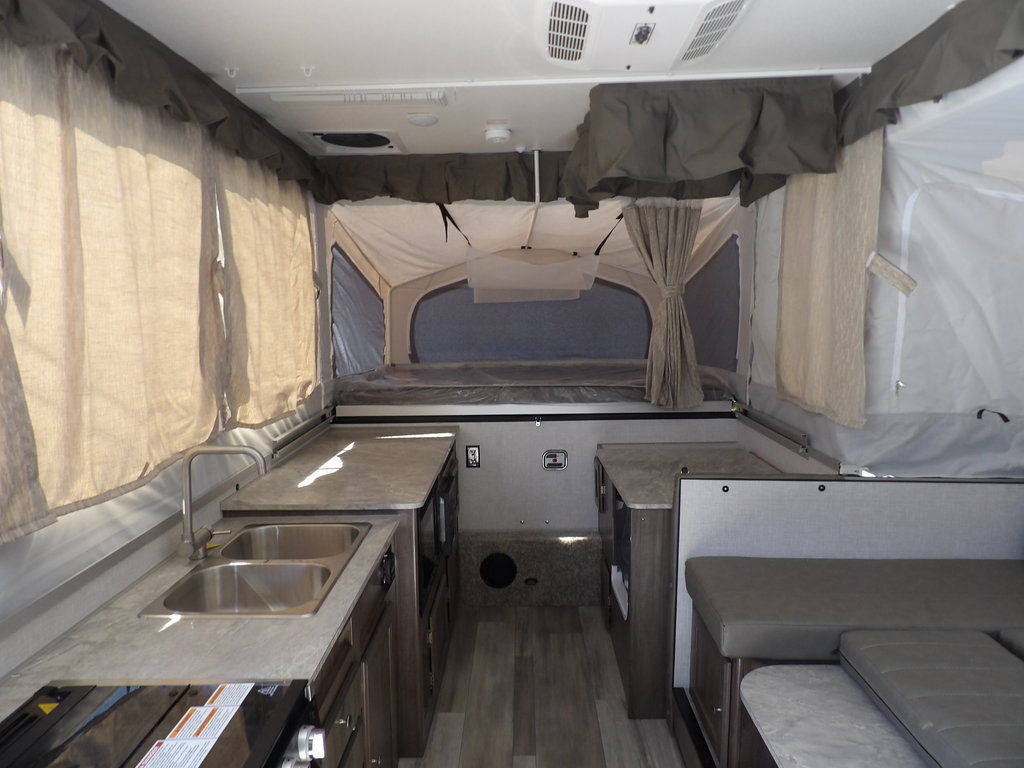
Pop-up campers provide a comfortable and convenient camping experience, reducing the likelihood of accidents caused by discomfort or lack of amenities.
While pop-up campers are generally considered safe, there are some potential safety issues.
If you’d like to know more about other disadvantages of pop-up travel trailers, read this article.
If you’re considering a pop-up travel trailer over a tent, here is an article about why you might want one.
Pop-up Trailer Safety Issues
Here are some issues that pop-up tent trailers may have.
Pop-up Tent Trailers Have Stability Issues in High Winds
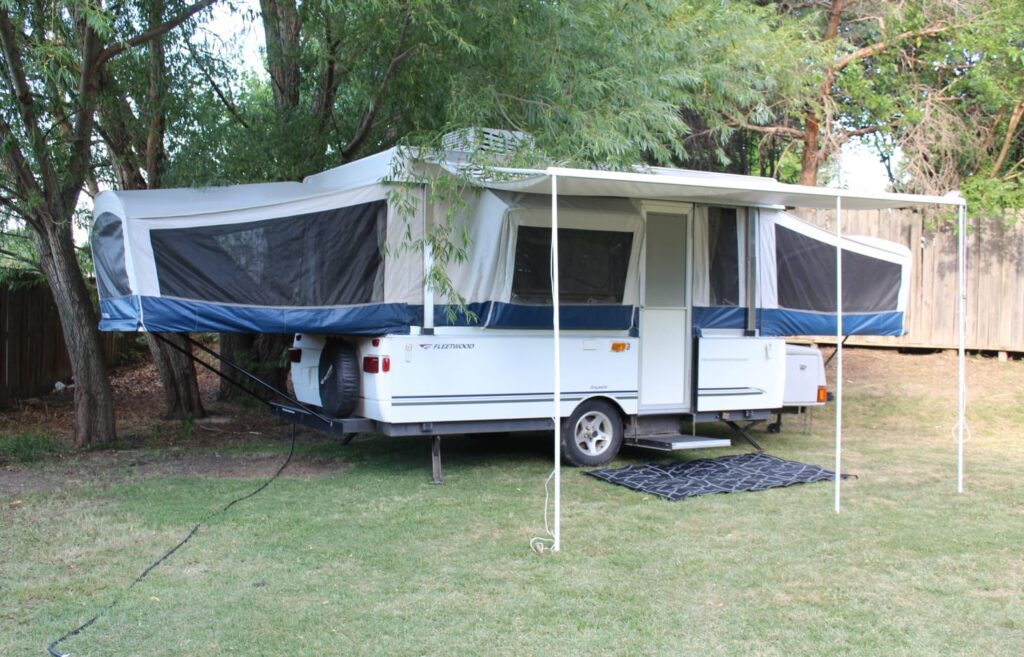
Pop-up tent trailers can be vulnerable to stability issues in high winds due to their lightweight construction. Wind gusts can cause the trailer to sway or even tip over, posing a serious safety risk to campers.
While pop-up campers are designed with a low center of gravity to provide more stability in windy conditions, they can still be susceptible to tipping over in strong gusts. It’s important to secure the camper with stabilizer jacks and guy ropes to minimize the risk of tipping.
Additionally, campers should avoid setting up the trailer in open areas where wind gusts are more likely and should always secure the trailer with guy ropes to prevent it from tipping over. Regular inspections of the trailer and its components can also help to identify any potential stability issues before they become safety hazards.
Pop-up Tent Trailers Have a Potential for Water Damage
Pop-up tent trailers are susceptible to potential water damage, particularly if they are not properly sealed or if the canvas material becomes worn or damaged.
Water damage can lead to mold, mildew, and other health hazards if not addressed promptly. To prevent water damage, it’s important to inspect the trailer regularly for signs of leaks or damage to the canvas material. Any damaged areas should be repaired promptly to prevent water from entering the trailer.
Pop-up campers are not as well-sealed as hard-sided campers, which can make them more vulnerable to water damage during heavy rain or snow.
In addition to regular inspections, campers should also take steps to prevent water from entering the trailer during use. This may include using rain-flys or tarps to provide extra protection from rain and ensuring that all windows and doors are properly closed and sealed. It’s also important to avoid setting up the trailer in low-lying areas where water is more likely to accumulate.
If your pop-up tent trailer gets wet, it’s important to take immediate action to prevent water damage and mold growth.
As soon as possible, remove any wet items from the trailer and open all windows and doors to allow air to circulate. If possible, use fans or dehumidifiers to speed up the drying process.
Once the trailer is dry, inspect it thoroughly for signs of water damage or mold growth. Look for discoloration or warping on the walls or ceiling, as well as any musty or damp odors.
If you notice any damage, such as tears in the canvas material or water stains on the walls, make repairs promptly to prevent further damage or mold growth. Depending on the extent of the damage, you may need to replace the canvas or other components of the trailer.
To prevent mold growth, it’s important to clean and disinfect the trailer thoroughly. Use a mixture of water and vinegar or a commercial disinfectant to clean all surfaces, and be sure to dry everything thoroughly afterward.
Pop-up Tent Trailers Have Limited Insulation
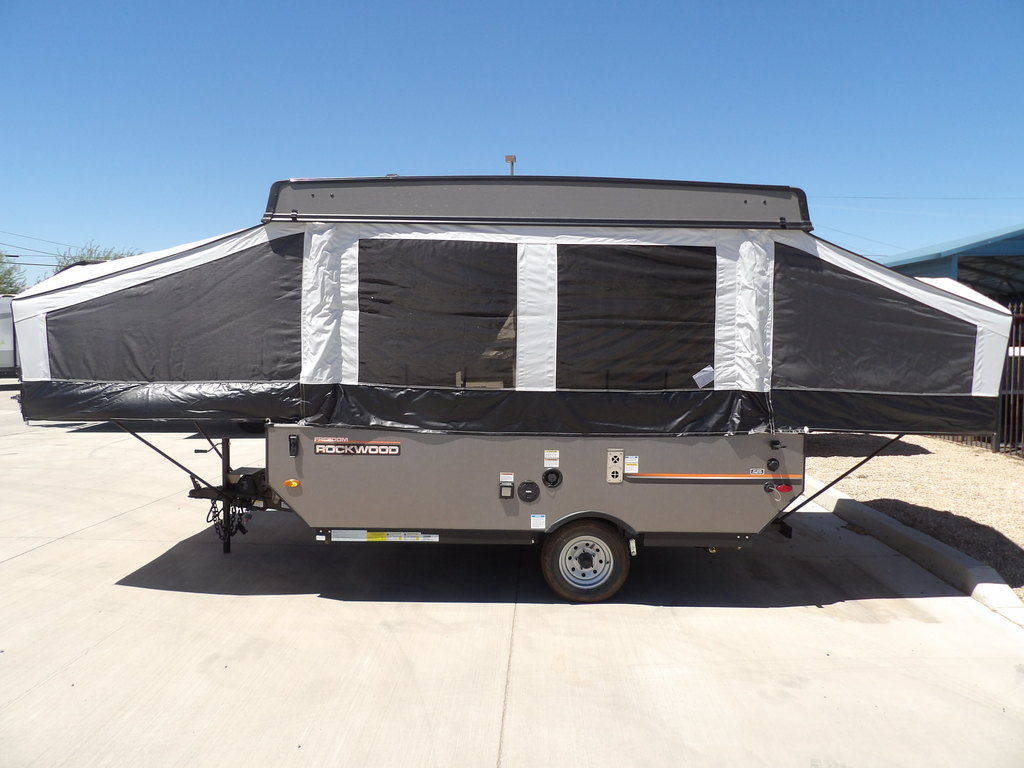
Pop-up tent trailers may have limited insulation, making them less suitable for use in extreme weather conditions. The canvas material used in these trailers provides some insulation, but it may not be enough to keep campers warm in very cold temperatures. Similarly, the lack of insulation can make the trailer uncomfortably hot in very warm temperatures.
In addition to the potential for discomfort, limited insulation can also pose a safety risk if campers are not adequately prepared. If the temperature drops too low, campers may be at risk of hypothermia or other cold-related illnesses. To prevent this, it’s important to bring appropriate clothing and bedding to stay warm in colder temperatures.
Finally, limited insulation can also make the trailer more vulnerable to noise and other disturbances from outside. If the campground is particularly noisy or if there are strong winds, campers may find it difficult to get a good night’s sleep.
Earplugs and white noise machines can help to mitigate some of these issues, but campers should be prepared for the potential for noise and disturbances in a pop-up tent trailer.
Pop-up Tent Trailers Have Limited Storage Space
Pop-up campers typically have less storage space than traditional campers, which can create potential hazards if gear and equipment are not properly secured while in transit.
Pop-up Tent Trailers Have a Risk of Carbon Monoxide Poisoning
Pop-up campers that use propane-powered appliances, such as stoves or heaters, can pose a risk of carbon monoxide poisoning if the appliances are not used or vented properly.
It’s important to have functioning carbon monoxide detectors in the camper and to follow the manufacturer’s instructions for the safe use of propane appliances.
Pop-up Tent Trailers Can Have Electrical Safety Issues
Pop-up tent trailers often come equipped with electrical systems to provide lighting, heating, and other amenities. However, these systems can pose a safety risk if not used properly. The main risk is the potential for electrical shock or fire, which can occur if the wiring or other components are damaged or improperly installed.
To prevent electrical safety issues, it’s important to inspect the trailer’s electrical system regularly for signs of damage or wear. Any damaged components should be repaired or replaced promptly to prevent electrical shock or fire.
It’s also important to follow all manufacturer’s instructions when using electrical appliances or other devices in the trailer.
Campers should be aware of the risks associated with using electrical devices in wet or damp conditions. Water and electricity do not mix, and using electrical devices in wet conditions can increase the risk of electrical shock or fire.
If you plan to use electrical devices in wet conditions, be sure to use devices specifically designed for outdoor use and follow all safety guidelines carefully.
Carbon Monoxide Poisoning Potential in Pop-up Tent Trailers
Pop-up campers that use propane-powered appliances, such as stoves or heaters, can pose a risk of carbon monoxide poisoning if the appliances are not used or vented properly.
It’s important to have functioning carbon monoxide detectors in the camper and to follow the manufacturer’s instructions for the safe use of propane appliances.
Pop-up Tent Trailers Can Have Cooking Safety Issues
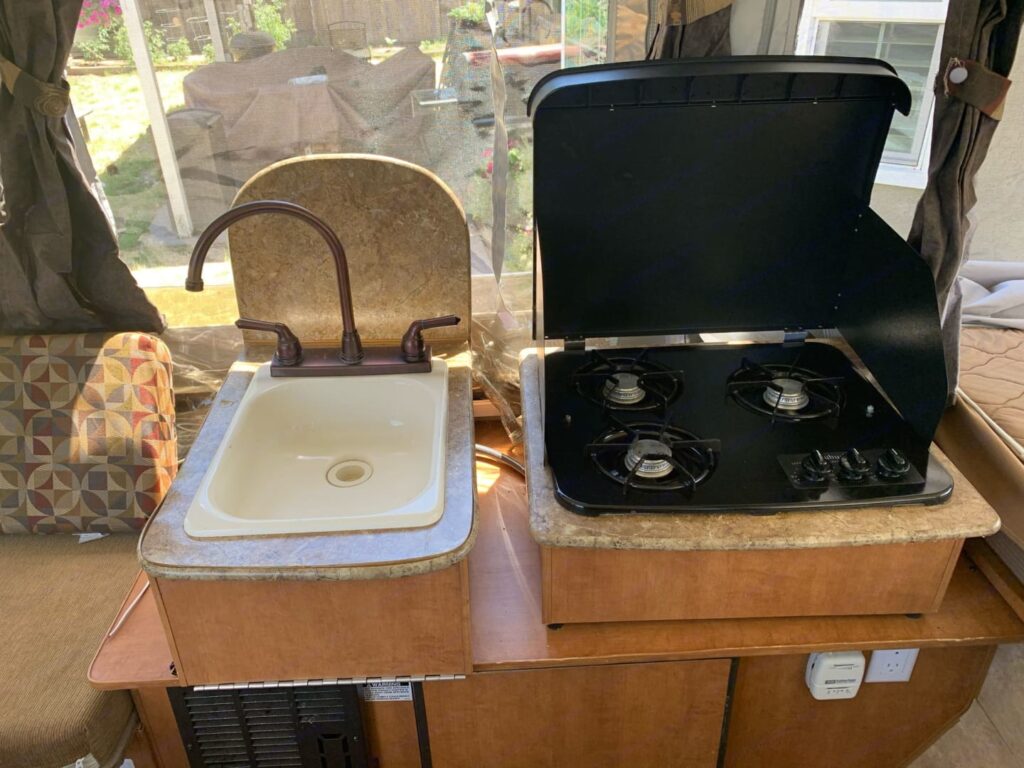
Cooking in a pop-up tent trailer can be convenient and enjoyable, but it also poses certain safety risks. The main risk is the potential for fire, which can occur if the cooking equipment is not used properly or if flammable materials are placed too close to the heat source.
To prevent fires, it’s important to follow all manufacturer’s instructions when using cooking equipment and to keep flammable materials at a safe distance.
As I mentioned, another safety issue related to cooking in a pop-up tent trailer is the risk of carbon monoxide poisoning.
This can occur if a gas stove or other cooking equipment is used in an enclosed space without proper ventilation. To prevent this, it’s important to ensure that the trailer is well-ventilated while cooking and to never use gas-powered equipment indoors.
Pop-up Tent Trailers Can Have Hitching and Towing Safety Issues
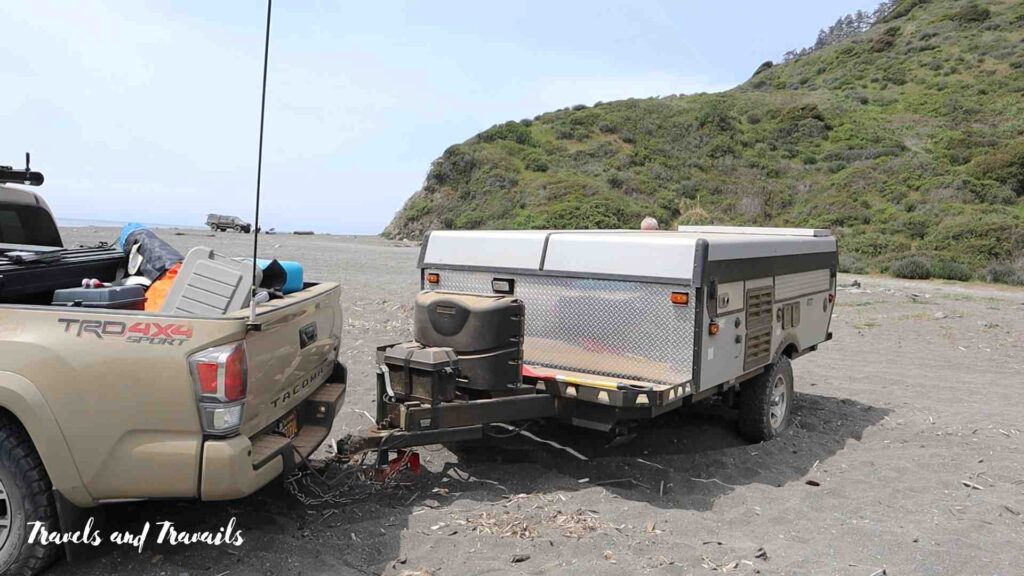
Towing a pop-up tent trailer poses several safety risks that campers should be aware of. One of the main risks is trailer sway, which can occur if the trailer is not properly balanced or if it is exposed to strong winds or other weather conditions.
This can cause the trailer to become unstable and potentially cause an accident. To prevent trailer sway, it’s important to properly balance the trailer and to drive at a safe speed.
Another towing safety issue is the potential for brake failure or other issues with the trailer’s braking system. This can occur if the brakes are not properly maintained or if they are not adjusted properly for the weight of the trailer.
To prevent brake failure, it’s important to have the trailer’s brakes inspected regularly and to follow all manufacturer’s instructions when adjusting or repairing the braking system.
It’s important to be aware of the risks associated with towing a heavy trailer. Towing a pop-up tent trailer can place additional strain on your vehicle’s engine and transmission, which can increase the risk of mechanical failure.
To prevent this, it’s important to ensure that your vehicle is capable of towing the trailer safely and to follow all manufacturer’s recommendations for towing capacity. It’s also important to drive at a safe speed and to take breaks as needed to prevent driver fatigue.
Pop-up Tent Trailers Have Potential Wildlife Safety Issues
Camping in a pop-up tent trailer can bring you closer to nature, but it also poses certain safety risks to wildlife. Depending on the location of your campsite, you may encounter wild animals such as bears, raccoons, and other animals that can pose a threat to your safety.
To prevent wildlife encounters, it’s important to properly store all food and trash in secure containers and to follow all park or campground guidelines for wildlife safety.
Another potential wildlife safety issue is the risk of disease transmission from wild animals. Certain animals, such as rodents and deer, can carry diseases that can be transmitted to humans through bites, scratches, or contact with feces or urine.
To prevent disease transmission, it’s important to avoid contact with wild animals and to properly dispose of any waste in a sanitary manner.
Finally, it’s important to be prepared for wildlife encounters while camping in a pop-up tent trailer. This may include carrying bear spray or other deterrents, as well as knowing how to respond if you encounter a wild animal.
It’s important to follow all park or campground guidelines for wildlife safety and to stay alert and aware of your surroundings at all times.
Pop-up Campers Can Be More Vulnerable to Break-ins
Pop-up tent trailers can be more vulnerable to break-ins compared to other types of RVs. This is because the canvas sides and soft walls of the trailer can be easily slashed or cut by potential intruders. To prevent break-ins, it’s important to keep all doors and windows locked and to install additional security measures such as deadbolts or alarms.
Another vulnerability of pop-up tent trailers is the lack of privacy and security. Because the walls of the trailer are often made of canvas or other soft materials, it can be easier for potential intruders to see inside and determine if there is anything valuable inside. To prevent theft, it’s important to keep all valuables out of sight and to avoid leaving any personal belongings unattended.
Finally, it’s important to be aware of the risks associated with camping in remote or isolated locations. While these areas can provide beautiful scenery and peaceful surroundings, they can also attract unwanted attention from potential intruders or thieves. To reduce the risk of break-ins, it’s important to camp in well-lit areas with plenty of visibility and to avoid camping alone whenever possible.
Conclusion
While pop-up tent trailers can provide a unique and enjoyable camping experience, it’s important to be aware of the potential safety risks that come with using them. From stability issues in high winds to vulnerable break-ins, there are a variety of safety concerns that should be addressed to ensure a safe and enjoyable camping trip.
By following proper safety protocols and being prepared for potential risks, campers can minimize their risk and enjoy a memorable and safe camping experience.
